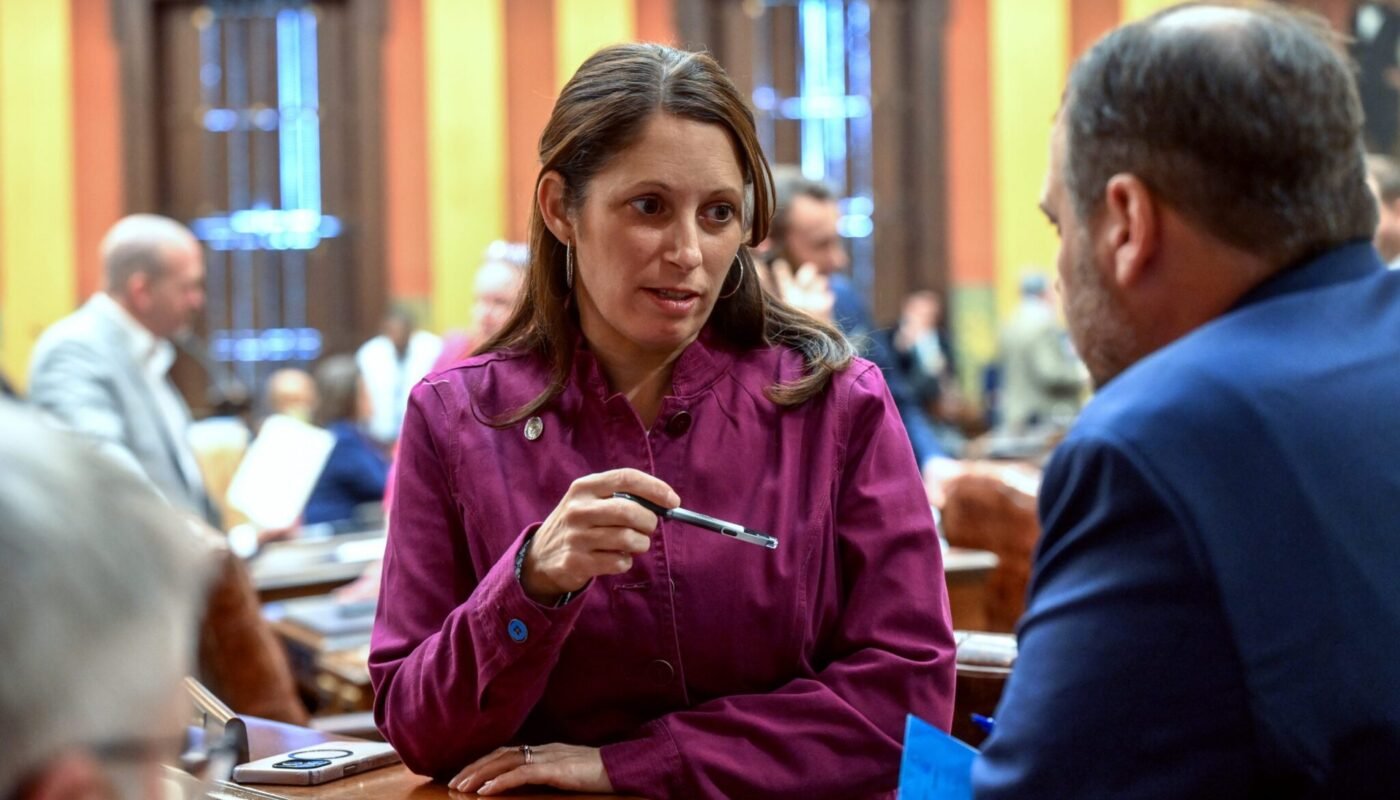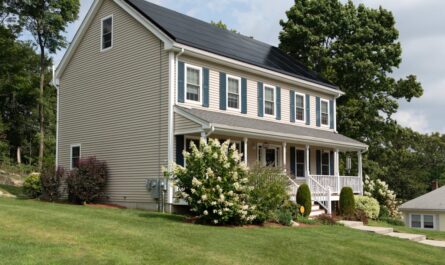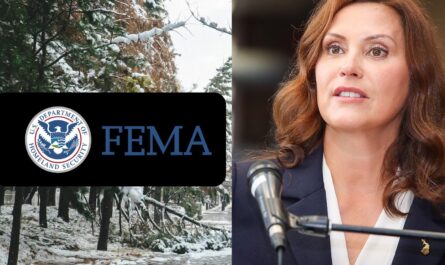Lawmakers move to return local authority over renewable energy siting, reversing a 2023 state mandate.
LANSING, Mich. – The Michigan House of Representatives has passed a pair of bills aiming to reverse the state’s controversial takeover of local decision-making on wind and solar energy projects. The legislation, spearheaded by Rep. Jennifer Wortz (R-Quincy), seeks to restore the power of townships and counties to approve or deny large-scale renewable energy developments within their borders.
The proposed rollback, covered in House Bills 4027 and 4028, would undo parts of the 2023 Clean and Renewable Energy and Energy Waste Reduction Act, which granted the Michigan Public Service Commission (MPSC) the authority to override local zoning laws for major renewable energy projects.
Local Control Over Renewable Projects Takes Center Stage in Lansing
The legislative effort follows ongoing discontent among rural communities, where large wind and solar installations have become flashpoints for debate over land use, property values, and environmental impact. Under the current law, passed in 2023, the MPSC—a three-member panel—has the final say on siting decisions, often superseding local ordinances.
“This is about restoring people’s voices in their own communities,” Rep. Wortz said in a statement, criticizing what she described as “ridiculous green energy mandates” imposed by Lansing. Wortz emphasized that residents in Hillsdale County, Branch County, and Hudson—areas she represents—are demanding a return to local oversight.
Examining the Impact of Michigan’s 2023 Energy Overhaul
The 2023 overhaul set Michigan on a course to achieve 100% clean energy by 2040, mandating a phased shutdown of natural gas power plants. Proponents argued that the measure was essential to meet climate goals and modernize the grid, but opponents have warned of rising energy costs and community pushback.
According to legislative analysis, about 17,000 acres in Michigan are currently occupied by wind and solar farms, with more expected as part of the green energy transition?. Wortz and fellow supporters of the rollback claim that the clean energy mandates could double monthly power bills for Michigan families.
“The people I serve already pay a lot for electricity,” Wortz stated. “We need to reverse these mandates and prevent unnecessary cost hikes.”
Energy Experts Highlight Broader Implications
Industry analysts note that the repeal could have significant ripple effects. Sarah Mills, senior research specialist at the University of Michigan’s Center for Local, State, and Urban Policy, pointed out in a recent report that Michigan’s clean energy progress hinges on balancing statewide goals with local autonomy. However many locals do not have any planning or policy with respect to local sitings.
“While 70% report having at least considered plans or policies regarding energy issues, fewer (59%) report having actually developed local policies, and 55% say they have implemented such policies, according to the survey.”
The American Clean Power Association has expressed concern that revoking MPSC oversight could deter investment, as developers face a patchwork of local ordinances. Meanwhile, local governments and residents opposed to renewable projects see the legislation as a necessary correction.
What’s Next for Michigan’s Renewable Energy Siting Laws
The bills now advance to the Michigan Senate, where debate is expected to intensify. If passed, House Bills 4027 and 4028 would:
- Repeal Part 8 of the Clean and Renewable Energy Act, which created the MPSC certification process??.
- Amend the Michigan Zoning Enabling Act to restore full local authority over renewable energy siting?.
A final enactment would mark a major policy reversal just two years after the state adopted its aggressive clean energy blueprint.
Related Developments in Michigan’s Energy Landscape
The rollback debate comes amid broader discussions on grid reliability, climate change mitigation, and rural economic development. In 2024, Michigan was ranked among the top 15 states for installed wind capacity, and new solar projects have been touted as economic lifelines for struggling farm communities.
For a full look at the 2023 legislative changes, visit Michigan House Legislative Analysis.
Sources
Mills, Sarah. “U-M survey: More than half of Michigan’s local governments have developed energy plans.” Center for Local, State, and Urban Policy, University of Michigan, 2020, Accessed 30 Apr. 2025.
American Clean Power Association. “Advocacy and Permitting Priorities.” CleanPower.org, Accessed 30 Apr. 2025.
Find More Interesting Feature Stories From ThumbWind
- Michigan Feature Stories – Unveiling the diverse and vibrant people, captivating places, and remarkable events that come together to make the Great Lake State unique and cherished by both residents and visitors alike.
- Weird Political News – A sarcastic take on official news from around the U.S., exploring the absurdities that often arise in the political landscape while providing a humorous perspective on current events and highlighting the quirks of politicians and policies.
- Michigan News – News and events from Michigan’s Upper Thumb region worth knowing, including local stories, impactful interviews, and updates on community happenings that shape the culture and lifestyle of the area.
Your Turn – Like This, or Loath it – We Want To Hear From You
Please offer an insightful and thoughtful comment. We review each response. Follow us to have other feature stories fill up your email box, or check us out on Newsbreak at ThumbWind Publications.




